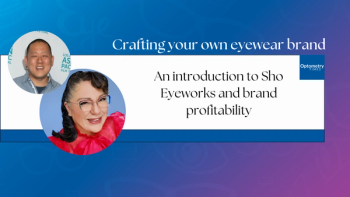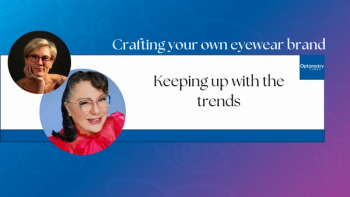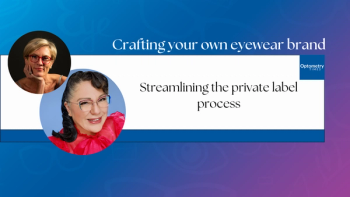
Practical management EP 11: Knowing you're in a good place to purchase a practice
As we continue our conversation on practice management, Maria Sampalis, OD, gives pointers on evaluating a practice for sale and how to know if you are in a good investment spot.
Maria Sampalis, OD, owner of Sampalis Eye Care in Cranston and Providence, Rhode Island, sat down with Optometry Times®' editor Kassi Jackson to talk all-things practice management.
Editor's note: This transcript has been edited for clarity
Jackson:
So friends, we're talking today with Dr. Sampalis about how to evaluate a practice for sale and what to look out for. Dr. Sampalis. From a practitioner standpoint, how do you know you're in a good place to purchase a practice that's for sale?
Sampalis:
You want to evaluate your financial situation; you want to make sure that you're stable, that you have some student loans paid off, that you have some money saved. But in general, buying a practice, you're able to get a loan from the bank, and the bank perceives optometry as a safe profession, and [inaudible].
I don't have heard a lot of optometrist that kind of went bankrupt when they bought a practice. So it is a safe thing to do, but are you going to be able to have some of your debt paid down a little bit in order to kind of feel comfortable to do so.
But that being said, you know, if you have some experience working a couple of years, you also have some experience with the business aspect if you paid attention when you're working at these other practices. And kind of learning these little things will help as you kind of roll into buying a practice, as well.
But a lot of doctors will start with no business advice, no experience, and that's fine. It's kind of like you learn as you go and sometimes you make some mistakes. I made a lot of mistakes at the beginning and still, you know, have a lot to learn. I've done pretty well over the last couple of years with practice net and purchasing practice and valuing certain practices for sale.
Just because of practice is for sale doesn't necessarily mean it's the right opportunity for you. There's been some practices that I kind of turned down over the years and some that I kind of looked upon and maybe should have, you know, considered it a little more then. But sometimes it's you know, quality of life, where the practice is located, if there's an opportunity to purchase the real estate, and know what the right price is because you need cash flow.
Newsletter
Want more insights like this? Subscribe to Optometry Times and get clinical pearls and practice tips delivered straight to your inbox.





